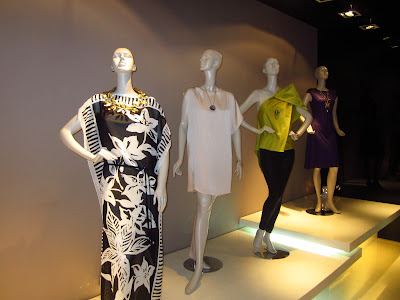How many people will matter in our lifetime?

I ask this simple question, curious on how all the sundry people we know affect our existence, or the existence of others. With my line of work, I have met a number of people who, from acquaintances or introductions, have become close friends or people I greatly admire. I have written about noteworthy people and I aim to highlight more individuals who, in their own profession or accomplishment, have piqued my interest and earned my respect.
My current advocacy speaks about the drastic changes in our living condition. Everyone has been affected with climate change and we all are suffering its effects daily. We have been complaining about the extreme heat we are experiencing, the ecstatic yet extreme typhoons, and all other issues about our environment, but little do most know that there is a government agency that has been working nonstop in initiating and rolling out steps to address these conditions.
I would like to introduce Secretary Lucille Sering, who I closely work with at the Climate Change Commission (CCC). Our commission is the government agency tasked to create, coordinate, and evaluate programs relating to climate change among others. The CCC team is composed of dynamic and passionate people who are working to make a difference for this generation and the ones ahead, performing studies and research to generate policies or action plans on climate change.
One of the first few things I have learned from Secretary Sering about climate change is that dealing with this problem can not solely be done by just the CCC; it is a collective effort that involves every Filipino. I have always been concerned with climate change but to be honest, I knew very little about it. In the past months, after meetings with the secretary and the CCC team, I am learning more and understanding what I can do to contribute to a positive change.
With all these in mind, I decided to interview and write about Secretary Sering to share her background and advocacy to everyone, and what is being done about climate change in the Philippines.
How did the passion and advocacy to address climate change come about?
I grew up in
Surigao del Norte, a province regularly hit by typhoons. I was in high
school when one of the deadliest typhoons called "Nitang" hit my
town. The chaos somehow left a mark on me. I refused to believe that the
wrath of nature is an excuse for the suffering that ensued. After passing the
bar, I started teaching environmental law and then eventually brought me
to my current job.
What is your daily work schedule as Secretary of the Climate
Change Commission (CCC)?
I am an
early waker but not an early riser. I wake up around 5 am and, even with eyes
still closed, I reach out for my computer or ipad. I start browsing for news.
Once done, I start reading policy papers published either by the World Bank, UN
and other international organizations. I also read local policy papers. I
start preparing for work around 8 am and I always arrive at work around
10. If I’m not at the office, almost always my day is spent outside for
meetings.
I used to
play badminton or go to the gym after work - I’m trying to reclaim that part of
my life again soon!
You’ve always stressed about spreading consciousness rather than
just awareness on climate change. Why is that and what are the important steps
being done by the CCC regarding this?
The world
has been made aware of the effects of climate change since the early 90’s. But
that awareness got stuck with governments including the
Philippines. Climate change as a term is mentioned in some government
policies but they were never taken seriously until weather events started
getting extreme in the last 10 years. Although awareness and consciousness are
considered one and the same in definition, I believe that the word
consciousness pushes one to be more on guard thus one acts.
Typhoon
Ondoy in 2009 prompted congress to pass the Climate Change Act mandating
government to mainstream climate change in all government plans and
programs. Despite being a young organization, the CCC already crafted
the first national action plan on climate change. But like all plans, unless
implemented, it remains that, a plan. We need other government agencies to
act as well. The role of the private sector is also crucial in implementing the
plan. Hence the need for convergence among all sectors, public and
private. The National Climate Change Action Plan is not a plan of the CCC
alone, but of everybody.
For this year, we are adopting the slogan "I Plan, I
Act". The slogan starts from an individual but taken collectively. Every
Filipino should own that plan so together we act to implement it.

We have been pushing for lifestyle changes. With this, what are
some of the more important things that you intend to instill in every
Filipino’s consciousness?
Every
Filipino must be made aware of the plan and thereafter to consciously make that
effort to work together with government because government cannot do it alone.
Every Filipino must demand from the government the services it deserves. But
for a Filipino to do that, one must know what one asks. In short, be
informed.
Being a third world country, is there hope still in the
Philippines in addressing climate change? Why?
We no longer refer to the Philippines as a third world country. We now
call ourselves a developing country. And yes, there is still hope that the
Philippines will be able to address climate change. We have proven to the
world our resiliency in addressing a crisis. Climate change is not an
exemption. We need to be able to adapt to changes and act as fast before it’s
too late. I would not be in this job if I did not believe that there is
still hope. The key: good governance leading to a strong political
will.
photo taken during the Greeneration Summit Cebu with student delegates
For more information on the Climate Change Commission, please visit:


























